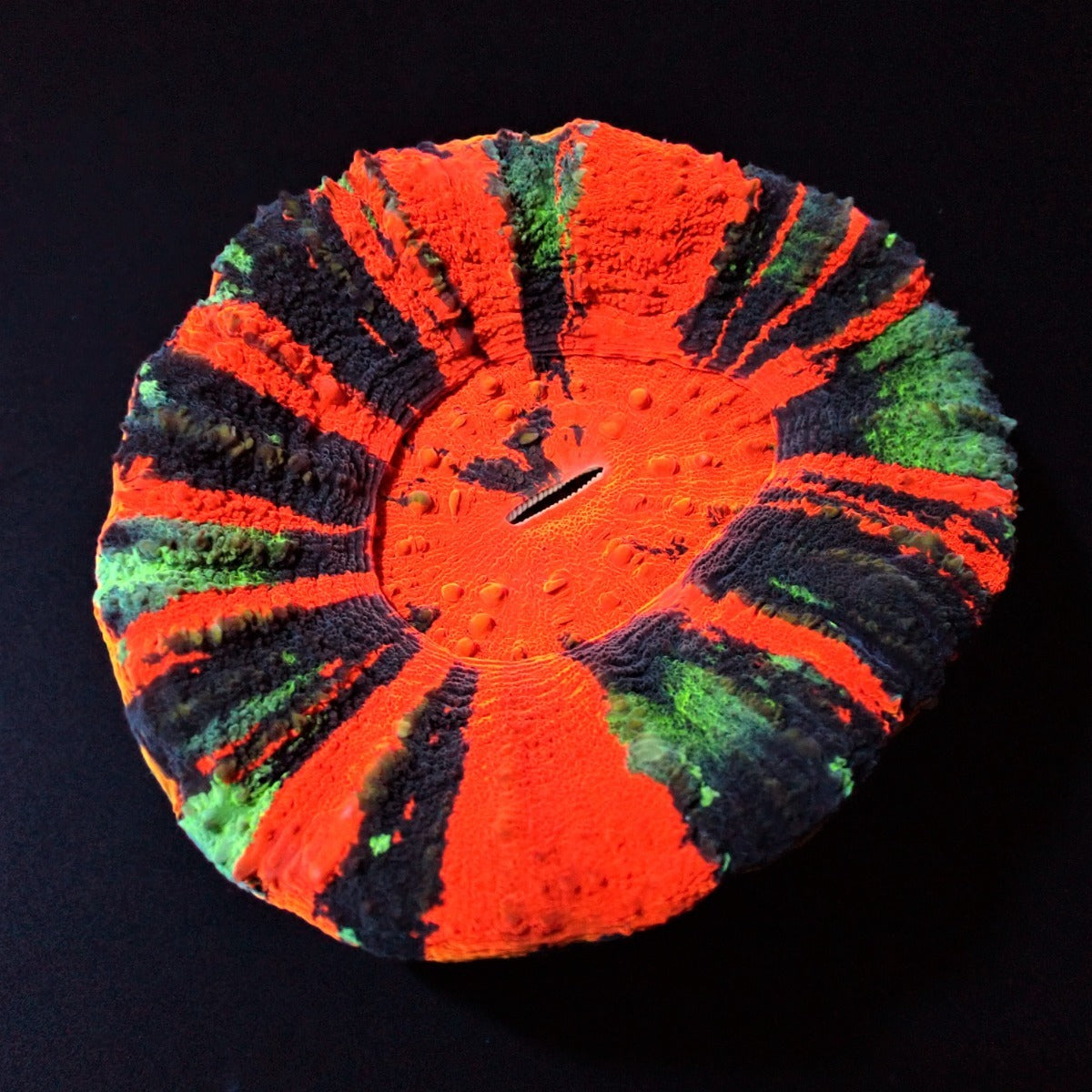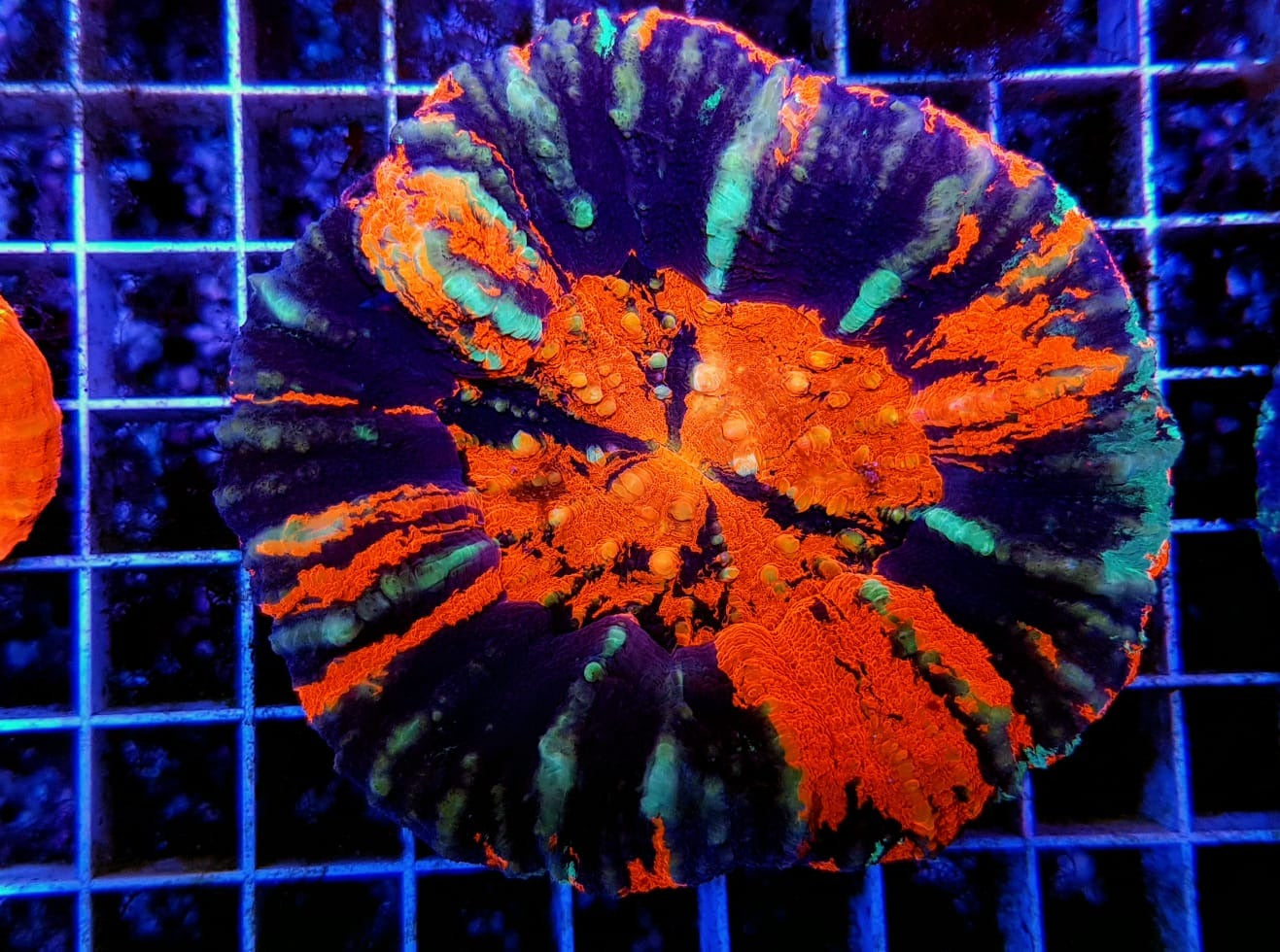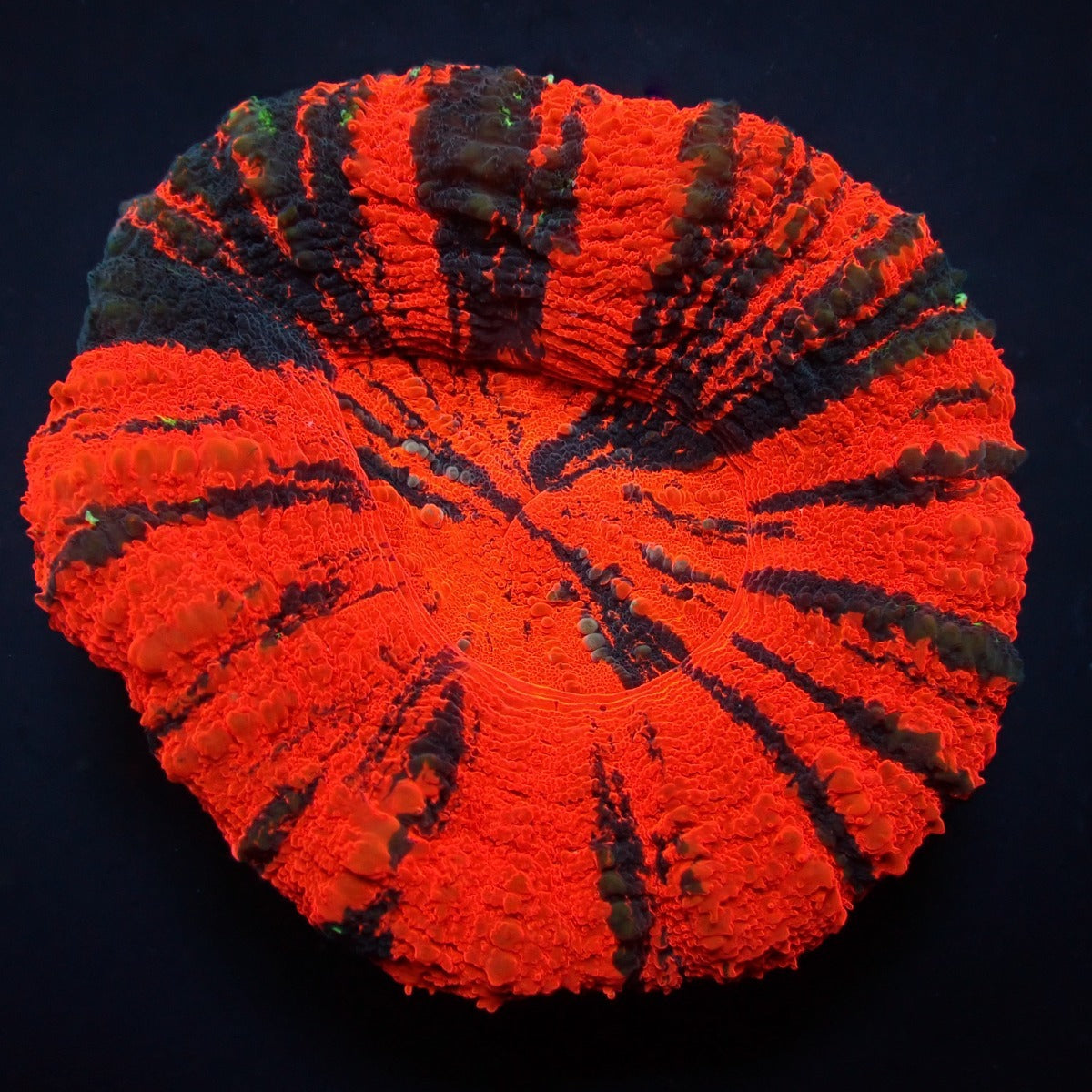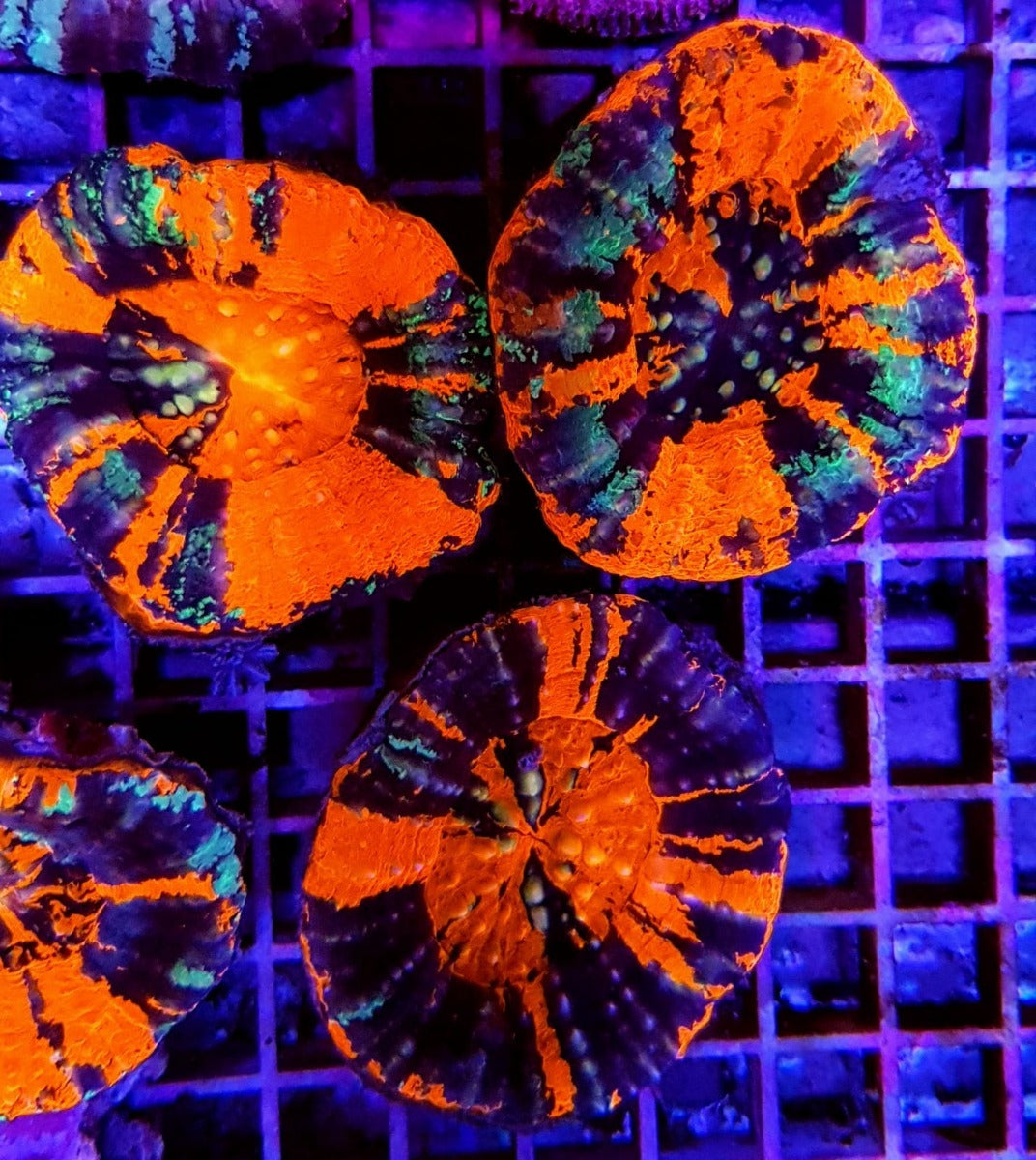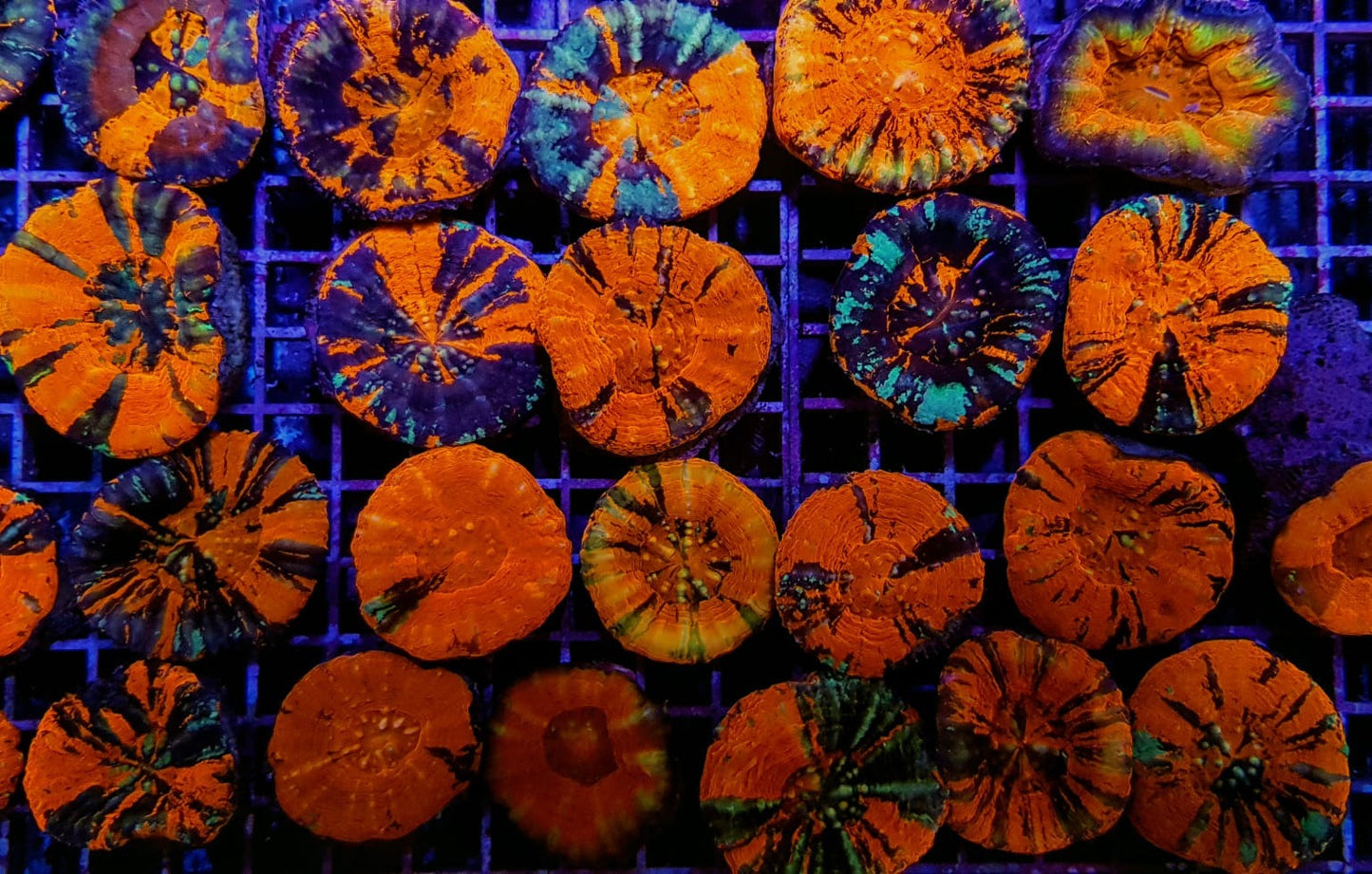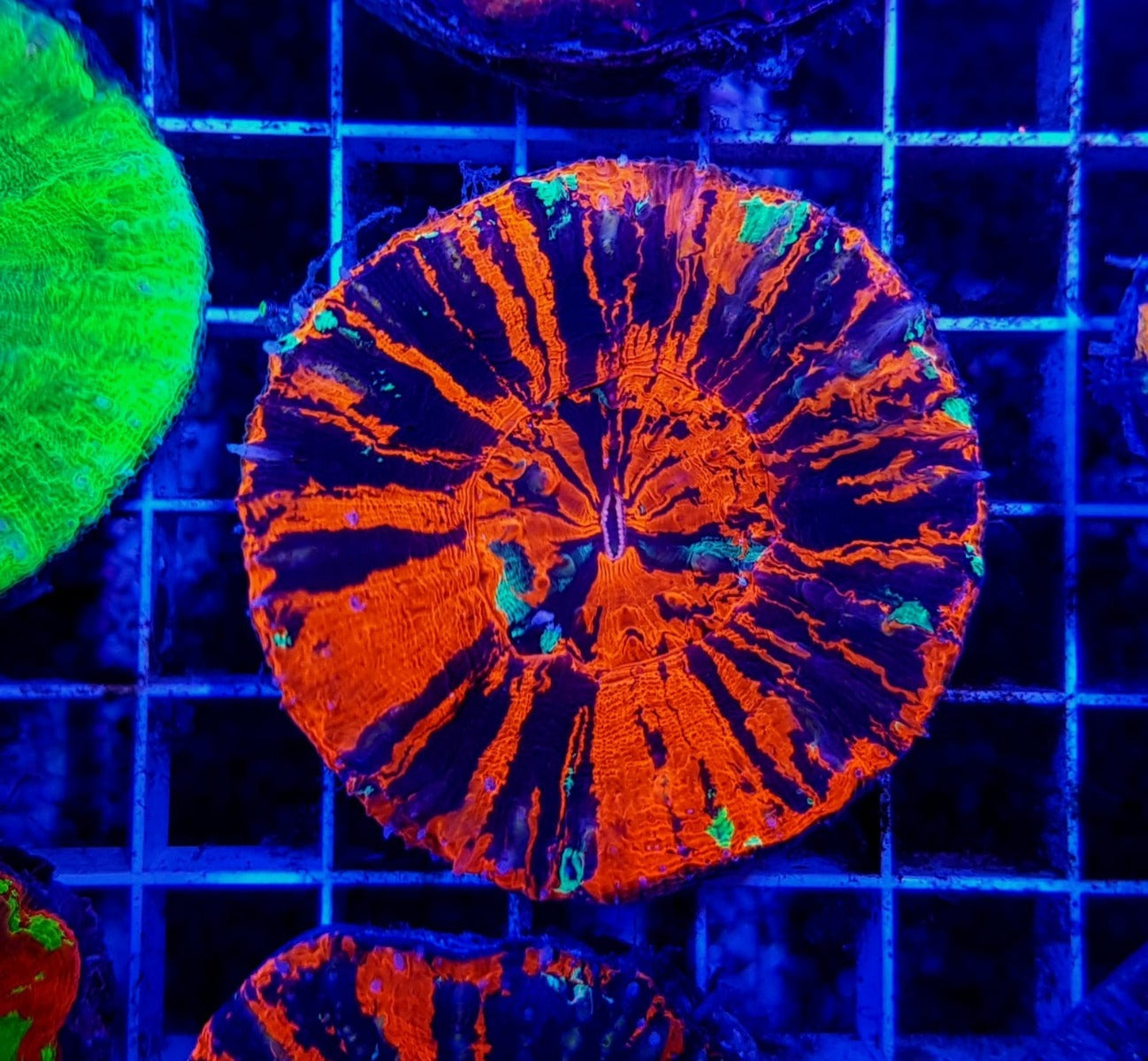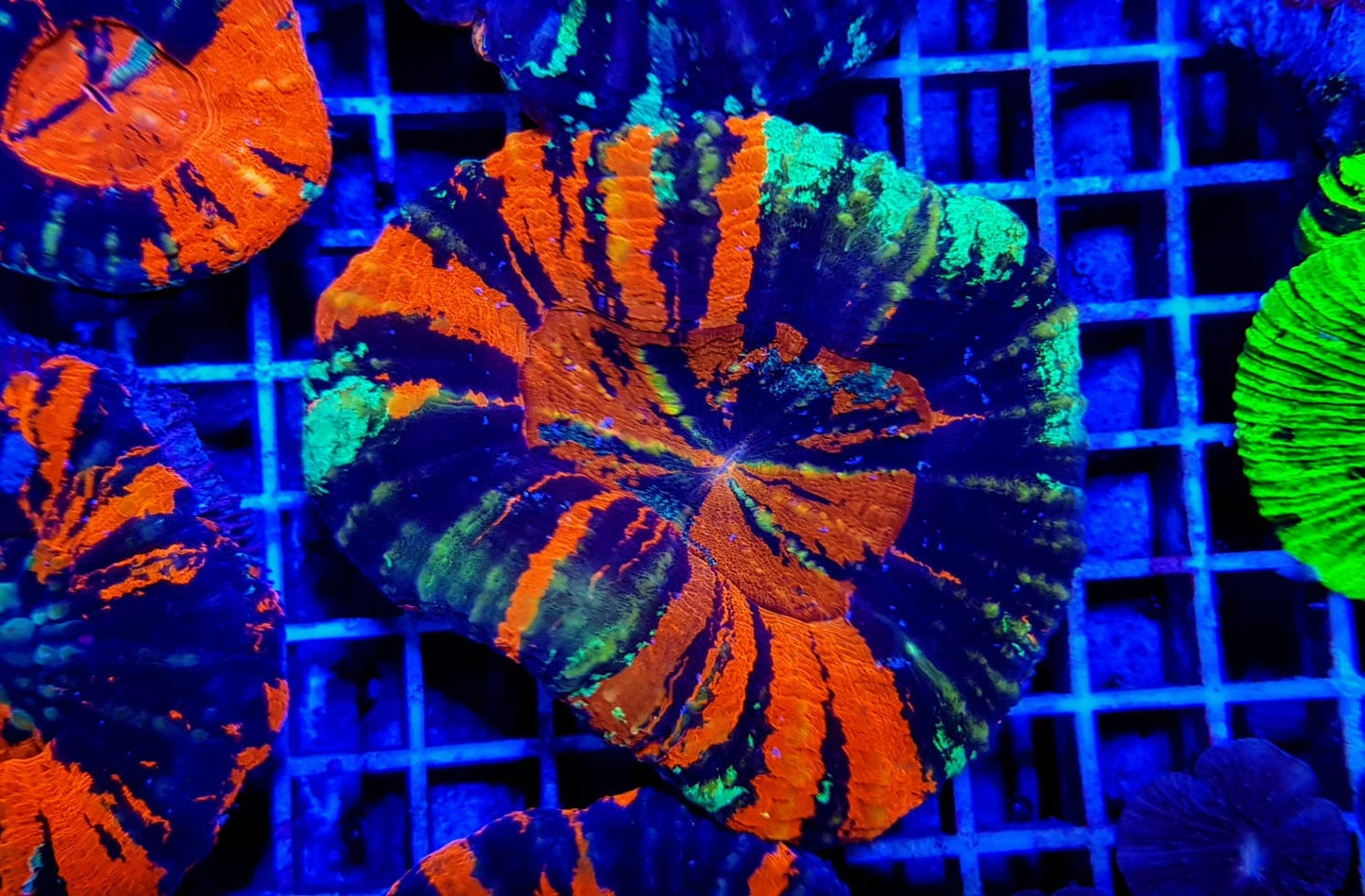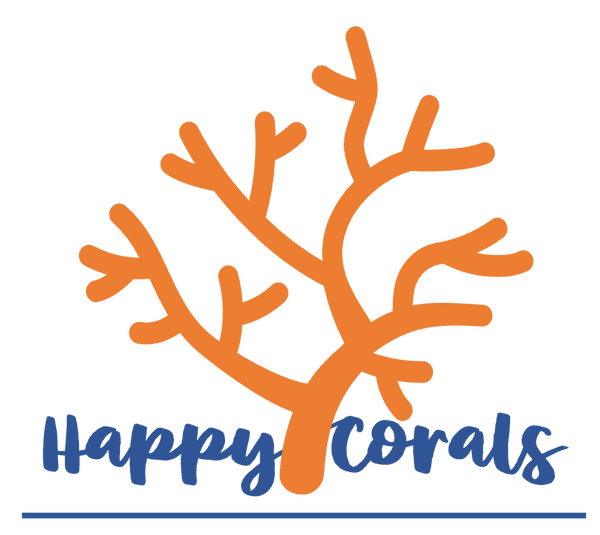Coralreef Store
Scolymia australis (War Paint)
Scolymia australis (War Paint)
Couldn't load pickup availability
- Indo-Pacific
- Moderate to High Care Level
- For Experienced Hobbyists
- Moderate Placement in Reef Tank
Scolymia, commonly known as the Acanthophyllia or Open Brain Coral, is a stunning and resilient species native to the Indo-Pacific region. This solitary coral species is recognized for its large, fleshy disk that can display vibrant hues, including red, orange, green, and purple, often with contrasting color patterns. Its round shape and intricate texture make it an eye-catching addition to any reef tank. When healthy, Scolymia has a unique feeding behavior where its polyps extend outward to capture food.
Scolymia is suitable for experienced aquarists due to its sensitivity to water quality and environmental factors. While it is relatively hardy, it requires specific care to ensure it thrives in a home aquarium.
Placement in the Tank
Scolymia thrives under moderate lighting, with an intensity around 100-200 PAR. Avoid placing it in direct, intense light, as this can lead to stress and potential bleaching. It is best positioned in the middle or lower sections of the tank, where indirect light mimics its natural environment.
For water flow, Scolymia prefers moderate flow. Excessive current may cause its polyps to retract or become damaged, while stagnant water can hinder its feeding process. A water flow rate of around 10-20 tank volumes per hour is ideal.
Water Parameters
Maintaining stable and precise water parameters is critical for the health of Scolymia. The recommended range includes:
- Temperature: 24°C to 28°C (75°F to 82°F). A stable 26°C (79°F) is ideal.
- Salinity: 1.023–1.025 specific gravity (SG), with 1.024 being optimal.
- pH: 8.0 to 8.4, with an ideal pH of 8.2.
- Alkalinity (dKH): 8-12 dKH, with 9-10 dKH being optimal for growth.
- Calcium: 400-450 ppm, crucial for skeletal formation.
- Magnesium: 1250-1350 ppm.
- Nitrate: Less than 5 ppm, as elevated nitrate levels can harm coral health.
- Phosphate: Below 0.03 ppm to prevent algae growth that competes for nutrients.
Feeding
While Scolymia benefits from its symbiotic relationship with zooxanthellae (photosynthetic algae), it is also a filter feeder that needs supplemental feeding. In aquariums with limited plankton, provide Scolymia with liquid coral foods, zooplankton, or finely chopped meaty foods like mysis shrimp or brine shrimp. Feeding once or twice a week is typically sufficient. Overfeeding should be avoided to maintain water quality.
Maintenance and Care
Proper maintenance of Scolymia includes regular monitoring of water quality and periodic maintenance tasks:
- Water Changes: Perform regular water changes (10-15% weekly) to keep conditions stable and remove harmful substances.
- Water Parameter Monitoring: Consistently check parameters such as temperature, pH, and calcium to ensure optimal conditions.
- Pruning: Scolymia does not require frequent pruning, but be cautious of its growth and avoid overcrowding in the tank.
- Pest Control: Look out for pests like flatworms, aiptasia, and nudibranchs that can harm the coral. If detected, take immediate action to treat and remove them.
Compatibility
Scolymia is a peaceful coral but can be territorial, especially if placed too close to other corals. Avoid placing it near aggressive species with long stinging tentacles (e.g., SPS corals) to prevent damage. It thrives when housed with other soft corals or non-aggressive LPS species, as long as it has enough space to grow.
Conclusion
Scolymia is a captivating coral known for its impressive colors and distinctive shape. With proper care, stable water parameters, and regular attention, it can become a true centerpiece in a reef aquarium. Its moderate to high care level makes it ideal for experienced hobbyists who can maintain the stable, controlled environment it requires to thrive.
Share
